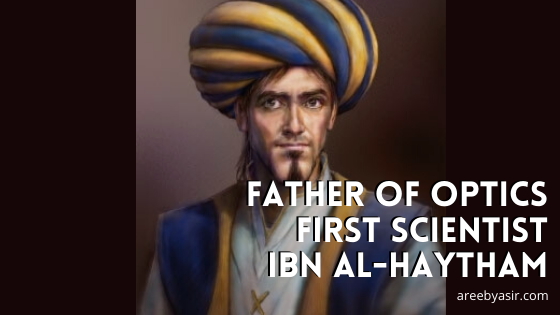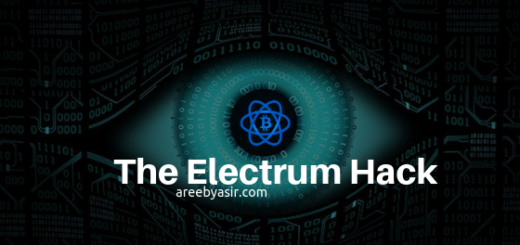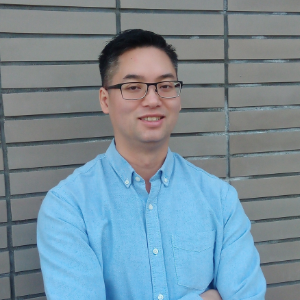The Father Of Optics, First Scientist

Today’s Muslim Inventor/Scientist who contributed to the modern world is Ibn al-Haytham. If anyone knows me personally you know why my wife chose this name specifically for our son. We hope that al-Haytham’s great legacy will be lived up to by our son. Although these a giant footsteps to fill. So the pressures on. Just kidding.
Ibn al-Haytham was a man of science and thought, and through his discoveries and writings, we have the modern inventions such as cameras, TV and other luxuries we enjoy daily, including the scientific method.
He is known as the father of optics and the first Scientists, and was the first to create the modern principal of the scientist method- experimenting as another mode of proving the basic hypothesis. Abū Ali al-Ḥasan Ibn al-Haytham al-Baṣrī (965-1040), known in European Middle Ages by the name of Alhazen, is a history gem that modern text books do not cover. He was a talented scholar of many disciplines, ie Mathematics, physics, mechanics, astronomy, philosophy and medicine. He lived during Islams Golden Ages. Since Science and Islamic values in the Quran do not conflict, open education and study of science was encouraged and praised. Ibn al-Haytham climbed to the heights of that praise.
He was a great writer and it’s said that he actually wrote 200 books by the end of his life, although much of those works were either destroyed or missing. By his own testimony though, he wrote 25 books on math sciences and 44 books on physics and metaphysics, also on meteorology and psychology. His autobiographical sketch clearly indicated that he believed and studied very thoroughly Aristotle’s natural philosophy, logic and metaphysics, which he gave a very detailed account of.
One of the biggest contributions that Arab and Persian scholars made during this time, aside from individual inventions and discoveries, were clear accounts and rewritten works from Western scholars- many of these books that were translated into English, were actually translated from Arabic/Persian copies. Without which, the world may never know of past Western scholars and their discoveries, which could have greatly set back our world. You can say that Ibn al-Haytham was one of these contributors without even knowing that book burnings and centuries of intelligence suppression would occur later in the future, across the globe.
But perhaps the biggest contribution Ibn al-Haytham made to this world is his succesful book, which dubbed him the title “Father of Optics”.
His most famous book in Arabic was on optics, Kitāb fī al-Manāẓir. It has 7 volumes detailing with experimental and mathematical study of the properties of light.
“Ibn al-Haytham’s Discourse on Light and tracts On the Light of Stars, On the Light of the Moon and On the Halo and the Rainbow are the main sources from which his working method can be deduced. In the sequel, I exemplify the main features of Ibn al-Haytham’s method as the design of experiment in order to test a hypothesis, and not using it just for observation or discovery as used by his predecessors”. – Unesco
What does this mean, it means that he created the ‘scientist method’ to experiment with light to come to his conclusions. With this, he essentially became the first scientist. You probably didn’t learn that in your science or history class. In fact, a lot of what is discussed in the 12 years of education children learn in school, doesn’t cover any Muslim, Indian, Arab, Chinese or Persian discoveries and contributions to the modern world. But that’s another blog.
Ibn al-Haytham’s contributions don’t stop there. He was the first to discover and explain that vision occurs when light reflects from an object and then passes to your eyes. He was also the first to demonstrate that vision occurs in the brain not in your eyes. He beat Renaissance scientists by 5 centuries on proving using experiments. In all textbooks of the western world, the Italian physicist Galileo Galilee ( 1564–1642) is presented as the father of this scientific method. So far, many of these textbooks that are still being taught in school, have not changed.
To read more about Ibn al-Haytham and learn of his legacy and contributions to the world in optics, science and math, click here or here to watch this video on this great Muslim Scientist.
With all that we learn in the 12 years we’re in school about past scholars and inventors who shaped our world, it’s important that we teach this generation going forward, of all the contributions made by all cultures and races- not exclusively one race, as we have for centuries.
Cheers
Areeb




